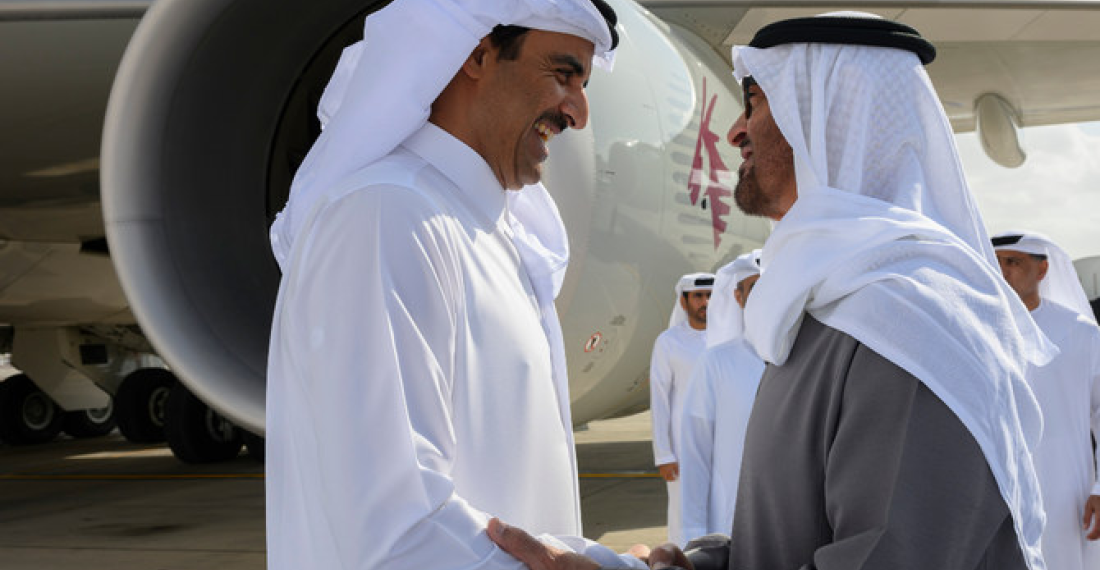The United Arab Emirates (UAE) and Qatar have become the latest Gulf countries to resume diplomatic ties in a string of diplomatic rapprochements in the region.
Qatar's Ministry of Foreign Affairs announced the decision in a tweet on Monday (19 June), adding that embassies and consulates would reopen and resume work on the same day.
The restoration of ties "represents the will of both countries’ leaders to strengthen joint Arab collaboration and achieve the aspirations of both peoples," the ministry said in a statement.
The UAE’s Foreign Minister Sheikh Abdullah bin Zayed Al-Nahyan and his Qatari counterpart Sheikh Mohammed bin Abdulrahman Al-Thani, who is also the Prime Minister, exchanged congratulations on the return of embassies, with both officials hailing the restoration of ties as heralding a “new stage of cooperation and partnership” that confirms the deeply rooted relations that bind both countries, according to a statement on Emirates News Agency (WAM).
Four countries, Saudi Arabia, Egypt, Bahrain and the UAE, announced a boycott against Qatar in 2017 after accusing the country of supporting Islamist groups in the region, and of having warm ties with Iran. They lifted the boycott in January 2021, and UAE President Sheikh Mohamed bin Zayed Al-Nahyan made his first trip to Qatar since the boycott during the World Cup on 5 December 2022.
The latest in a string of regional rapprochements
The current regional trend was in large part set in train by the announcement on 10 March that Saudi Arabia and Iran would restore diplomatic ties that had been broken since 2016. You can read more about this story here.
Some two weeks later, it was announced that Saudi Arabia and Syria were discussing resuming consular services, and on 19 April the Saudi Foreign Minister Prince Faisal bin Farhan met Syria's President Bashar al-Assad in Damascus, a meeting which was followed by Syria being officially welcomed back into the Arab League on 19 May.
On 12 April, it was also announced that Qatar and Bahrain would restore diplomatic ties that had also been cut by the 2017 boycott.







